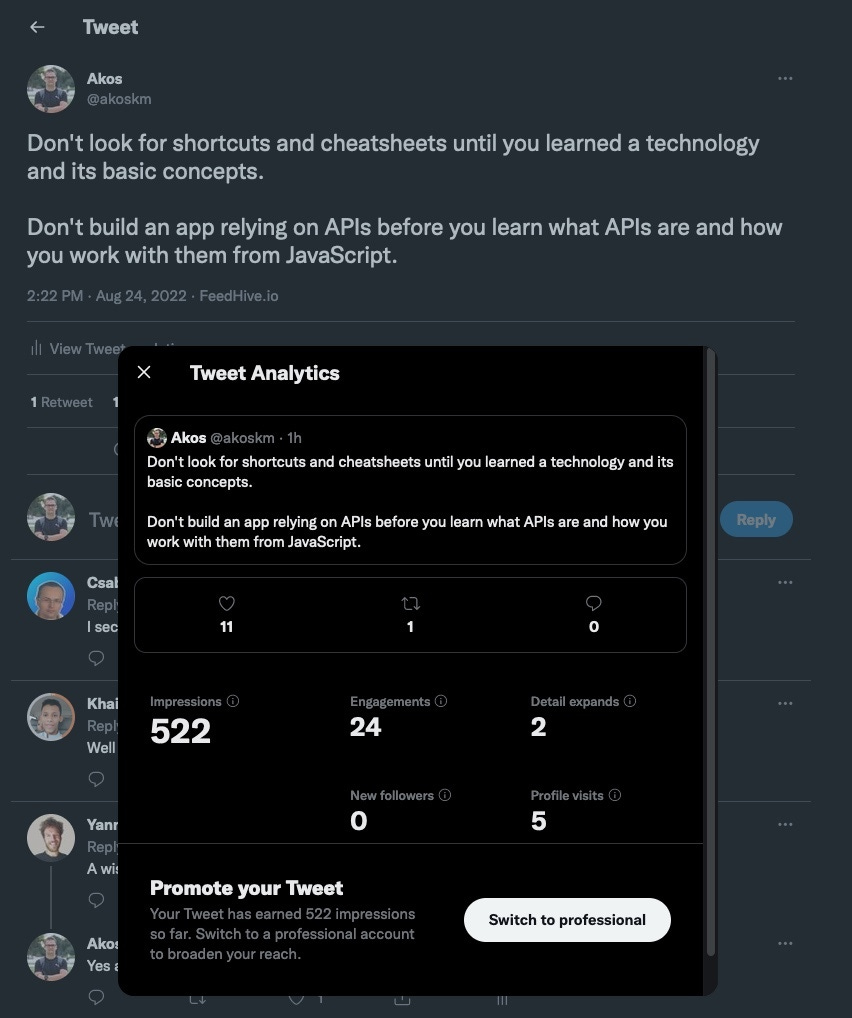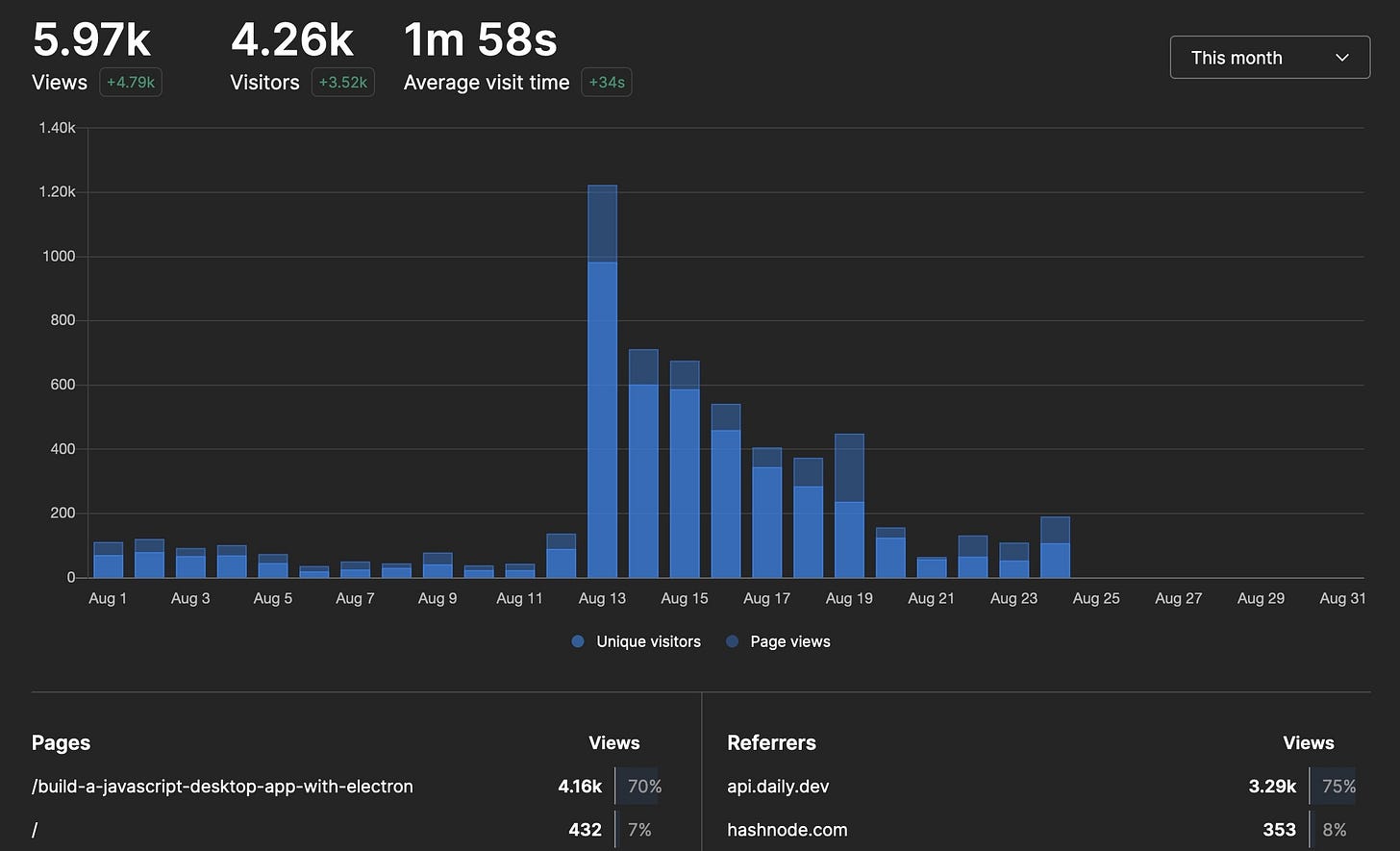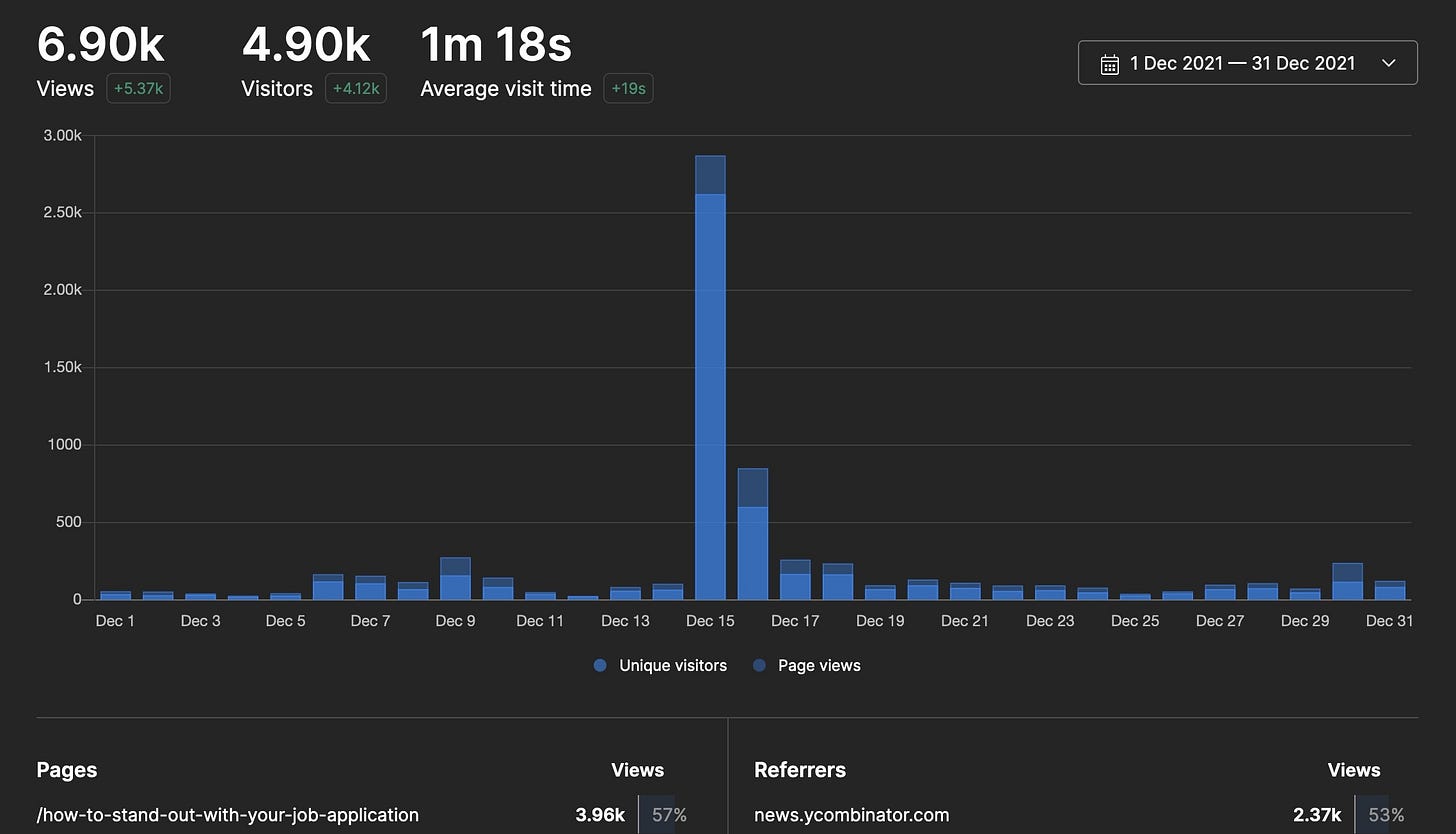Creating Better Content
Who wouldn't want to do that, right?
I believe soon, Twitter will transform, and some of our visibility will suffer. The point I made in The future of this newsletter in my past issue keeps being verified.
Stay with me in this newsletter to see how my stuff performed on Twitter vs. my blog.
What works and what doesn't?
Enjoy ✌️
Yesterday, my Tweet was visible to a whopping 3.6% percent of my users after 1 hour - posting it at the time I usually post:
It didn't mean to be a viral tweet or anything, just a casual piece of advice I wanted to give to developers.
I get way too many questions where the author's lack of understanding of a specific technology speaks for itself.
Engagement on Twitter
Getting engagement on Twitter was easy:
make a tweet
pack it with as many relevant keywords as possible
pray for the algorithm to pick it up.
This tweet got 3k likes and 1 Gumroad sale:

But this is pretty much where growth hacking ends. You got tons of new followers, both fake and real accounts, and only a small % of those will ever read anything again from you - at least in my experience.
This is why the idea of focusing more on long-form content has become a reality for me.
Engagement in the blogging world
This is where platforms such as "Dev.to" or Hashnode come into play, where my blog akoskm.com is also hosted.
You get traffic for free because you appear in the feed of other users of Hashnode. If you write something good, the platform or an aggregator such as daily .dev will pick it up and generate more views.
The key seems to be in mid to long-form content with non-obvious topics.
Or something that's just thought-provoking. For example, I got canceled to oblivion on HN after someone shared my post revealing ways for people to stand out with their portfolios. 🤷🏻♂️
What doesn't work
I keep returning to HN because that was my best source of criticism.
I found two great threads there that resonated with me:
Ask HN: Please stop writing tutorials/tech articles on Medium | Hacker News
If you ever learned something from a blog or from StackOverflow do contribute back by sharing your knowledge open on the internet, not behind a paywall.
Lot's of frustration in this thread from the vast amount of low-quality shallow tutorials made by programmers wanting to learn a particular tech or putting their thoughts out there in the wild.
There's nothing wrong with this, and I encourage people to write more, no matter where they are in their tech journey. I doubt most of these posts will rank high enough - or rank at all - for specific keywords in search engines.
Either way, people just won't read these short, basic tutorials.
But as a beginner, your primary reason is not to get readers but to write.
So you want to self-publish books and courses on programming | Hacker News
I don't mean to be rude, but some coding books' quality is not good. The majority are rehashes of online documentation on what the function does with barely any examples of "real world application" and could easily be found online for free.
Here's one of my key takeaways from this thread:
Most of the videos on my YouTube channel that are about "How to use X in Y" get minimal views, because they're so simple that you only need to see it once via a video or webpage to "get it". However, some of my more popular videos are where I implement algorithms like the Luhn Check algorithm. Have that kind of material in your book.
Conclusion
So what works?
Writing long-form, quality content or creating a video on a non-trivial topic requires more effort, but it certainly works.
Anything that reveals something non-trivial, regardless of the length of the content, probably also works.
Something that's thought-provoking and wakes up trolls and commenters without a face or identity also works - but remember, don't take the comments seriously.
If you're writing to get actual readers, what did work for you?
I hope you enjoyed this week's newsletter and you were able to pick up some interesting pieces from it!
Also, check out this article I wrote for the ongoing Hashnode Writeathon: Solve Problems like a Developer.
See you next week! 👋




